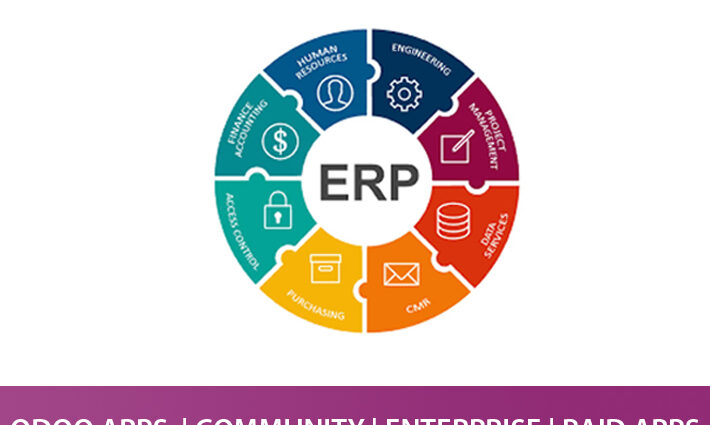Enterprise asset planning (ERP) systems have the potential to revolutionize your enterprise’s operational landscape. That’s why a meticulous ERP implementation is crucial to effectuate the necessary organizational changes comprehensively.
Key Components for Successful ERP Implementation
A successful ERP implementation hinges upon clearly defined and acquired objectives. Once established, your organization and software partner can initiate the implementation process. Collaborating with a proven implementation methodology ensures alignment between objectives and execution.
Understanding Enterprise Resource Planning (ERP)
Enterprise resource planning encompasses software specifically tailored to manage and integrate core business functions like inventory management, supply chain, HR, and finance within a unified system.
ERP software finds widespread application across businesses of all sizes and is deemed indispensable for large organizations. Increasingly, startups and growing small businesses are adopting ERP systems. These systems comprise various modules or software components, each focusing on a distinct business process.
Exploring ERP Modules
- ERP Finance Module: The finance module automates essential reporting, forecasting, financial analysis, invoicing, and accounting tasks. This transition from conventional accounting software to ERP is primarily driven by its robust financial capabilities.
- Human Capital Management (HCM) Module: Commonly referred to as HR, HCM streamlines core processes through ERP implementation. Managing employee records, payroll, talent management, and recruitment becomes significantly more efficient with HCM.
- Other ERP Modules: Additional modules encompass procurement, customer relationship management (CRM), sales management, and order management. Distribution or manufacturing-oriented organizations often incorporate the supply chain management (SCM) module to streamline logistics operations.
For more complex business requirements, transportation management systems (TMS) and warehouse management systems (WMS) may be integrated to oversee diverse logistics functions.
Benefits of ERP in Enterprises
Unified Data and Information
ERP systems establish a centralized hub for end-to-end data and workflow. They eliminate data redundancy while ensuring data integrity, facilitating informed decision-making across departments.
Enhanced Productivity
ERP solutions drive remarkable enhancements in productivity by eliminating repetitive manual tasks and process redundancies. Consequently, employees save valuable time, leading to heightened efficiency.
Improved Collaboration
Effective communication and collaboration thrive on access to pertinent information. ERP fosters collaboration by granting employees access to comprehensive data, enabling them to grasp the organization’s holistic perspective.
Seamless Integration
ERP systems feature integrated databases that support all core business processes. This seamless integration fosters cohesion across departments, resulting in enhanced customer experiences, informed decision-making, and knowledge sharing.
Simplified Quoting and Reporting
ERP software streamlines quoting processes and enhances reporting capabilities. Organizations can respond to complex data requests promptly, empowering users to generate reports autonomously without IT reliance.
Enhanced Customer Service
The inclusion of Customer Relationship Management (CRM) functionality within ERP systems boosts customer service and retention. Quick access to customer data enables swift and effective communication, fostering customer satisfaction and loyalty.
Comprehensive Business Insights
ERP software provides a 360-degree view of business operations encompassing HR, distribution, production, accounting, planning, customer service, and sales. This holistic perspective facilitates agile decision-making and ensures timely communication across relevant departments.
Cost Reduction
Through ERP implementation, organizations can optimize resource allocation and streamline operations, leading to reduced operational expenses. This, in turn, maximizes return on investment (ROI) and enables efficient financial management.
In conclusion, effective ERP implementation holds the key to unlocking operational excellence and driving sustained business growth. By leveraging ERP solutions, enterprises can streamline processes, enhance collaboration, and achieve significant cost savings, thereby gaining a competitive edge in today’s dynamic business landscape.
